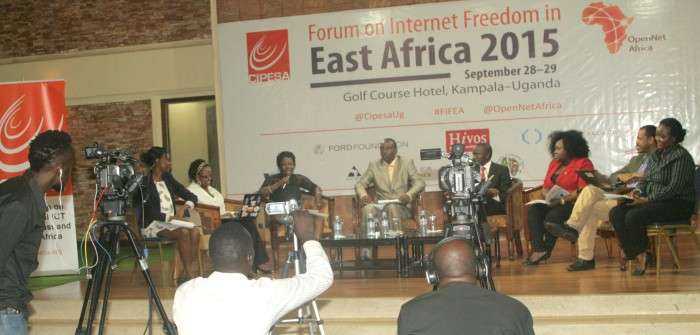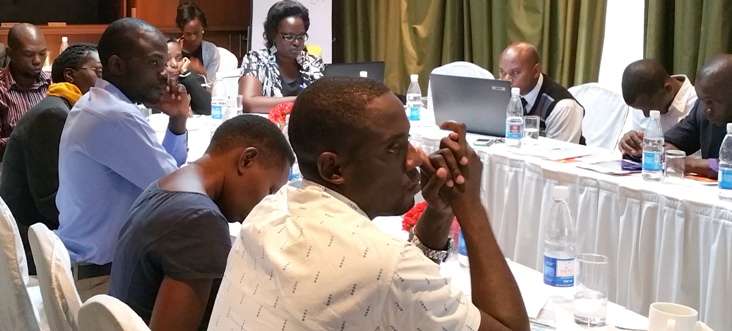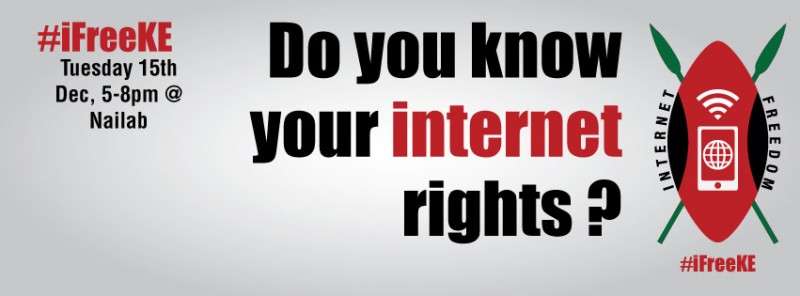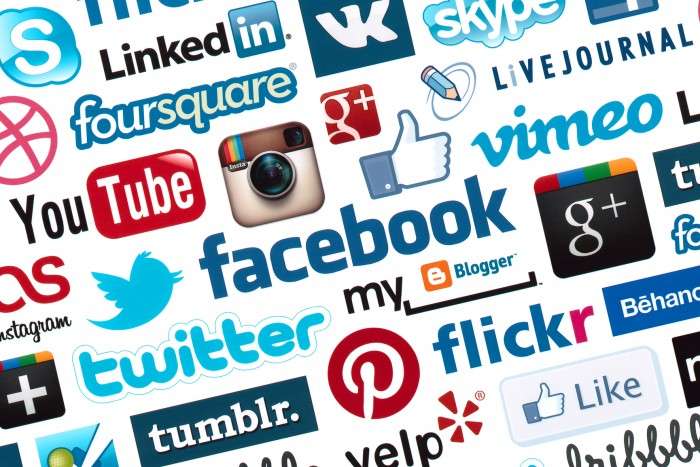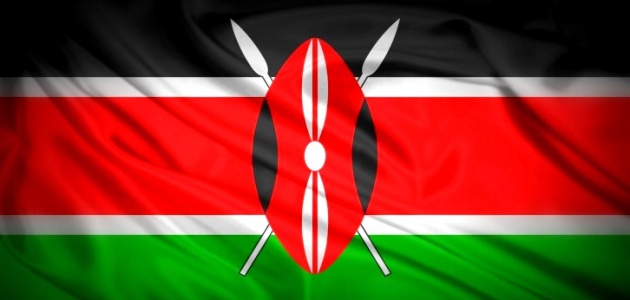By Juliet Nanfuka |
Towards the end of 2015, the Collaboration on International ICT Policy for East and Southern Africa (CIPESA) under the OpenNet Africa initiative convened some of Africa’s leading thought leaders to discuss the various facets of internet freedom in Africa.
The Forum on Internet Freedom in East Africa is one of very few gatherings that assemble an African audience within the continent to discuss matters related to upholding internet freedom. The Forum brought together 200 participants from 18 countries – triple the number of those who attended the inaugural 2014 forum, which hosted 85 participants from six countries. The event drew up a set of actionable recommendations that will inform onward engagements on advancing internet freedom in Africa by CIPESA and its partners, and hopefully for other actors in this space.
Over the course of two days, several issues were discussed, including how to address online violence against women (VAW), whose magnitude and manifestation is not clearly known, as most cases in Africa go unreported.
Another key highlight was the increase in freedom of expression violations for critical media and bloggers especially during periods of electioneering. One way to address this could be through the use of counter speech and transparency in combating hate speech, misinformation and false claims. The media’s role in advancing internet freedom in Africa – both as a vulnerable group but also as infomediaries – was highlighted.
Africa has registered a rise in abuses and attacks on internet freedom, including a proliferation of laws, legal and extralegal affronts, as well as limited judicial oversight over surveillance and interception of communications. Discussions on the balance between national security and its perpetual clash with freedom of expression, access to information and the right to privacy reflected the need to address gaps in existing laws that do not adequately protect citizens from mass surveillance and privacy infringements.
Meanwhile, the appreciation of digital safety tools and practices remains paramount, for citizens, the media, human rights defenders and activists. Thus, the continued need for capacity building and awareness raising efforts on internet freedom was stressed by Forum participants. Closely related to this is the need for localisation exercises between tools developers and end users, given the diverse contexts of African internet users.
Internet freedom could also be supported by the budding community of artists and creatives on the continent, who are currently not adequately involved in discussions around freedom of expression and privacy online.
Read the full Forum Report, which also explores the relationship between internet freedom and online economics, press freedom, online creative expression, access to information, cybercrime and digital safety, from the perspectives of law enforcement, regulators, intermediaries, artists, the media and human rights defenders. On each of these themes, the report discusses the challenges and opportunities and suggests actions to take in order to advance internet freedom in Africa.
CIPESA Convenes Journalists to Discuss Uganda’s Data Protection Bill
By Esther Nakkazi |
Ugandan citizens’ personal data may be at risk of misuse if the Uganda Data protection and Privacy Bill (2014) to be tabled before parliament is passed in current form. Currently, large entities like telecommunications service providers, insurers, hospitals and even schools retain the information of millions of citizens who remain unaware of how secure their information is, especially as more of it becomes digitised.
While Uganda called for comments to the Bill in late 2014, little progress was made on it over the course of 2015. According to Gloria Katuuku from the Ministry of ICT, the comments received have been incorporated into a revision of the bill. “We brought this Bill before the public so that we get conclusive remarks. The bill has been gazetted and will be tabled in parliament, meaning at this time we shall just compile the concerns,” said Katuuku. She was speaking at a workshop convened by the Collaboration on International ICT Policy for East and Southern Africa (CIPESA) where Ugandan parliamentary journalists discussed data protection and privacy with reference to the bill.

The workshop was organised in conjunction
with the Uganda Parliamentary Press Association (UPPA) and aimed to create awareness among parliament journalists about clauses in the proposed law that contravene citizens’ rights, including to privacy. Few journalists were aware that government had drafted the law and called for robust media engagement with Members of Parliament so as to generate debate on data protection and privacy issues.
The former Chairman of parliament’s ICT Committee, Edward Baliddawa, said the data protection law should have been the basis for other cyber laws in Uganda. He added that as the country edges towards e-commerce, such as business process outsourcing, there is a need to regulate data controllers.
“This Bill is good for our safety and privacy as individuals and to become an e-commerce country,” he said. However,he also called for continuous engagement with all stakeholders across the lifespan of the bill – drafting, tabling to parliament and any eventual amendments.
Although existing laws such the Electronic Signatures Act, 2011, the Computer Misuse Act, 2011, the Regulation of Interception of Communications Act 2010 and the Communications Commission Act 2013 cover aspects of data protection and privacy, they contain contradictions and potentially expose users’ information to unwarranted access and misuse by authorities. Lillian Nalwoga, CIPESA’s Policy Officer, said of the laws: “These laws have broad terminologies that should be amended to repeal contradictory provisions and this can be done within the Data protection and Privacy Bill, 2014 in the contexts of data users and collectors, and to prevent abuse.”
See this Overview of How ICT Policies Infringe on Online Privacy and Data Protection in Uganda
But the proposed data protection and privacy law that is meant to address privacy of citizens’ communications and data still has ambiguous terminologies, unclear definitions and arbitration issues that will negate its purpose.
According to CIPESA officials, the drafting phrase should further engage with and seek consultations with different stakeholders including civil society, private sector, the media and academia for an extended period prior to tabling it before parliament. This would ensure that the law passed “is inclusive, accommodative and addresses the concerns raised by all the stockholders,” said Wakabi Wairagala, the head of CIPESA.
At the workshop, CIPESA officials referred journalists to various areas of concern in the draft bill including some of its ambiguous terminologies, such as Section 4 (2) which states that personal data may be collected or processed where necessary for ’national security’ or for the ‘proper performance’ of a public duty’ by a public body. However, these words can be misinterpreted and leave room for the access to and abuse of citizens’ information.
Meanwhile, Section 7 (2) says data can be collected from another person, source or public body in certain circumstances without the consent of the owner. The length of time that the collected personal data can be retained is also not indicated. Section 14 (1) states that the data cannot be held for a period longer than is necessary and says it will be retained for national security purposes.
Overall, the bill does not explicitly state what constitutes a ‘privacy infringement’, thereby leaving users’ data open to abuse by data collectors and processors. It also does not state the procedures for citizens to access their data.
See CIPESA’s review of the Bill: Reflections on the Draft Data Protection and Privacy Bill
Dialogue on Internet Rights and Freedom in Kenya
By Marilyn Vernon |
In Kenya, whereas the use of the internet had expanded into all areas of day to day living, the threat of government surveillance and interference has impacted upon user confidence in the security of their online interactions. This comes after several local bloggers and social media users have been arrested and in some cases charged with misuse of licensed telecommunications equipment.
“The Kenya Government continues to use national security as a bigger right that trumps constitutional rights,” said Henry Maina, Regional Director of Article 19 East Africa. He said arrests and intimidation of government critics for expressing their opinions online “had become the norm” under the guise of national security.
Maina was speaking at an event aimed at promoting awareness on internet freedoms in Kenya. Organised by the Bloggers Association of Kenya (BAKE) under its Internet Freedoms Citizen Education Campaign, the event also aimed to help participants develop a deeper understanding of human rights online based on the African Declaration on Internet Rights and Freedoms. The declaration outlines 13 principles of human rights standards in internet policy formulation and implementation in Africa. These include openness, internet access and affordability, freedom of expression, right to information, and freedom of association and assembly.
The other principles are cultural and linguistic diversity, right to development and access to knowledge, privacy and personal data protection, security, stability and resilience of the internet, equality (gender and marginalized groups), right to due process, and democratic multi-stakeholder internet governance.
Kenya has one of the fastest growing rates of internet users in Sub-Saharan Africa, with the Communications Authority of Kenya (CAK) reporting an internet penetration rate of 54.8%. Coupled with the installation of fibre optic networks, the country also boasts the highest bandwidth with the fastest speed within the East African Community.
Social media remains a key contentious area on internet freedom in Kenya, where content posted has resulted in prosecution on unclear grounds. In December 2014, blogger Robert Alai was arrested and charged with undermining the authority of a public officer contrary to Section 132 of the Penal Code, by allegedly calling President Kenyatta an “adolescent president” in a blog. He was again arrested in February 2015 for offending a businessman online by linking him to a land saga that involved the illegal acquisition of the Langata Primary School playground.
Journalist Abraham Mutai was arrested following tweets he posted on corruption in the Isiolo County Government and was charged with the “misuse of a licensed communication platform to cause anxiety.”Another case in January 2015, involved a Kenyan student, Alan Wadi who was prosecuted and jailed for one year for insulting President Uhuru Kenyatta on social media.
More recently, the eruption of a Twitter storm dubbed #uhuruinkenya which mocked government spending on foreign trips had led to the alleged take down of a website created under the same hashtag. However, the Kenya Network Information Centre (Kenic), Kenya’s domain registry operator, denied taking down the site. The website isuhuruinkenya.co.ke which, is set to display a “YES” or “NO” when the president is in or out of the country respectively, has since been restored and is accessible within the country.
Also speaking at the event, Nanjira Sambuli, iHub Research Manager, stated that such incidents demonstrated that user vulnerability “is a very real threat” and reiterated the need to help users understand and make sense of digital safety and security, particularly the Terms of Service for social media platforms.
The issue of hate speech across ethnic and religious lines was also discussed, during which participants highlighted the need for user ethics and responsibility such as questioning and verifying sources before sharing information. “Security starts with you as the user,” noted Sambuli.
Kenya is party to a number of international human rights instruments and is a member of the Freedom Online Coalition – an intergovernmental coalition committed to advancing freedom of expression, association, assembly, and privacy online – worldwide. In 2012, Kenya hosted the Annual Freedom Online Coalition meeting in Nairobi. The previous year, it had hosted the global Internet Governance Forum (IGF) under the theme Internet as a catalyst for change: access, development, freedoms and innovation. However, these positive steps in the country’s recognition of internet freedom are subject to legislative and institutional hurdles, thereby making it difficult for citizens to freely enjoy their rights online.
The online conversation around the event was conducted with the hashtag #iFreeKE.
For further reference on what internet freedom means to Kenyan users see the Kenya Internet Freedoms campaign video.
Open letter to the Nigeria Senate on the “Social Media” Bill
An open letter has been delivered to the Nigeria Senate President stressing concerns over the Frivolous Petitions Bill which has provisions which threaten the use of social media in Nigeria.
Distinguished Senators,
We are a coalition of Nigerian, African, and international organisations writing to you about the proposed Frivolous Petitions (Prohibitions, etc) Bill that has provisions for social media regulation. We believe that the bill is a dangerous encroachment upon free expression and we urge you to reject it from further consideration. The use of social media is a mainstay of free expression in the digital age, and criminalising its use under the guise of “frivolous petitions” will adversely impact human rights while violating the principles underpinning Nigeria’s own constitution.
Background and relevant law
The bill, introduced by Senator Bala Ibn Na’Allah, is officially called “An act to prohibit frivolous petitions; and other matters connected therewith,” and has been nicknamed “Social Media Bill” by concerned citizens. The bill requires any person submitting a petition to the government to have an accompanying affidavit. This requirement would harm government transparency, making it more difficult, and costly, to complain about public services or graft. However, the bill goes much further. Section 3(4) states:
Where any person through text message, tweets, WhatsApp or through any social media post any abusive statement knowing same to be false with intent to set the public against any person and / or group of persons, an institution of government or such other bodies established by law shall be guilty of an offence and upon conviction shall be liable to an imprisonment for 2 years or a fine of N2,000,000 or both such fine and imprisonment.
Nigeria’s constitution provides strong free expression protections (Art. 39). Furthermore, Article 66(2) of the Revised Treaty of the Economic Community of West African States stipulates protections for the press. The African Charter on Human and Peoples’ Rights, which Nigeria has ratified, also guarantees the right to freedom of expression (Art. 9). These protections were reaffirmed in the 2014 judgment in the case Lohé Issa Konaté v. Burkina Faso finding that imposing criminal penalties for defamation fails to comport with Nigeria’s obligations. Internationally, free expression is protected under Article 19 of the International Covenant on Civil and Political Rights, and the United Nations (UN) has specifically stated that the right to free expression applies to the online world — including social media platforms. In 2011, then UN Special Rapporteur on freedom of expression Frank La Rue specifically called for decriminalizing defamation.
The bill violates Nigerian law and international law
The bill also presents unbalanced and short-sighted policy calculations. This bill cuts against Nigeria’s spirit of openness and support for a vibrant free press and an innovative internet ecosystem. Journalists would be at risk of criminal penalties for reporting on public officials, silencing a crucial tool to combat corruption and encourage accountable governance. Already the continent’s largest economy, Nigeria has 15 million Facebook users, and its technology sector is rapidly expanding. This restrictive law will only harm innovation and deter investment.
Specifically, we urge you to:
-
Reject the Frivolous Petitions Prohibition Bill (aka “Social Media Bill”) in its entirety
-
Ensure that, should the Senate choose to continue with the process of considering the bill, the required public hearing before the third reading of the Social Media Bill is announced publicly and enables full civil society input and participation
-
Amend or remove the penalties under Section 24(a) and 24(b) of the Cybercrime Act of 2015
-
Support the Digital Rights and Freedoms Bill, as a guarantor of human rights in the digital age.
We are available to meet with you about this matter at your earliest convenience.
Sincerely,
Access Now
Association for Progressive Communications
Centre for Information Technology and Development
Civil Society Legislative Advocacy Centre (CISLAC)
Collaboration on International ICT Policy in East and Southern Africa (CIPESA)
Committee to Protect Journalists
Electronic Frontier Foundation
Enough is Enough Nigeria
Freedom House
International Service for Human Rights
Internet Sans Frontieres
Media Rights Agenda
Paradigm Initiative Nigeria
PEN International
PEN Nigeria
Rudi International
Social Media Exchange (SMEX)
Web Foundation
West African Journalists’ Association
Zimbabwe Human Rights NGO Forum
Thanks to ICT, government secrets get ever fewer
By John Walubengo |
ICT IN POLITICS

